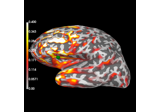mne.minimum_norm.get_cross_talk#
- mne.minimum_norm.get_cross_talk(resmat, src, idx, mode=None, *, n_comp=1, norm=False, return_pca_vars=False, vector=False, verbose=None)[source]#
Get cross-talk (CTFs) function for vertices.
- Parameters
- resmat
array, shape (n_dipoles, n_dipoles) Forward Operator.
- srcinstance of
SourceSpaces| instance ofInverseOperator| instance ofForward Source space used to compute resolution matrix. Must be an InverseOperator if
vector=Trueand a surface source space is used.- idx
listofint|listofLabel Source for indices for which to compute PSFs or CTFs. If mode is None, PSFs/CTFs will be returned for all indices. If mode is not None, the corresponding summary measure will be computed across all PSFs/CTFs available from idx. Can be:
list of integers : Compute PSFs/CTFs for all indices to source space vertices specified in idx.
list of Label : Compute PSFs/CTFs for source space vertices in specified labels.
- mode
None| ‘mean’ | ‘max’ | ‘svd’ Compute summary of PSFs/CTFs across all indices specified in ‘idx’. Can be:
None : Output individual PSFs/CTFs for each specific vertex (Default).
‘mean’ : Mean of PSFs/CTFs across vertices.
‘max’ : PSFs/CTFs with maximum norm across vertices. Returns the n_comp largest PSFs/CTFs.
‘svd’ : SVD components across PSFs/CTFs across vertices. Returns the n_comp first SVD components.
- n_comp
int Number of PSF/CTF components to return for mode=’max’ or mode=’svd’. Default n_comp=1.
- norm
None| ‘max’ | ‘norm’ Whether and how to normalise the PSFs and CTFs. This will be applied before computing summaries as specified in ‘mode’. Can be:
None : Use un-normalized PSFs/CTFs (Default).
‘max’ : Normalize to maximum absolute value across all PSFs/CTFs.
‘norm’ : Normalize to maximum norm across all PSFs/CTFs.
- return_pca_vars
bool Whether or not to return the explained variances across the specified vertices for individual SVD components. This is only valid if mode=’svd’. Default return_pca_vars=False.
- vector
bool Whether to return PSF/CTF as vector source estimate (3 values per location) or source estimate object (1 intensity value per location). Only allowed to be True if corresponding dimension of resolution matrix is 3 * n_dipoles. Defaults to False.
New in v1.2.
- verbose
bool|str|int|None Control verbosity of the logging output. If
None, use the default verbosity level. See the logging documentation andmne.verbose()for details. Should only be passed as a keyword argument.
- resmat
- Returns
- stcsinstance of
SourceEstimate|listof instances ofSourceEstimate The PSFs or CTFs as STC objects. All PSFs/CTFs will be returned as successive samples in STC objects, in the order they are specified in idx. STCs for different labels willbe returned as a list. If resmat was computed with n_orient_inv==3 for CTFs or n_orient_fwd==3 for PSFs then 3 functions per vertex will be returned as successive samples (i.e. one function per orientation). If vector=False (default) and resmat was computed with n_orient_inv==3 for PSFs or n_orient_fwd==3 for CTFs, then the three values per vertex will be combined into one intensity value per vertex in a SourceEstimate object. If vector=True, PSFs or CTFs with 3 values per vertex (one per orientation) will be returned in a VectorSourceEstimate object.
- pca_vars
array, shape (n_comp,) |listofarray The explained variances of the first n_comp SVD components across the PSFs/CTFs for the specified vertices. Arrays for multiple labels are returned as list. Only returned if mode=’svd’ and return_pca_vars=True.
- stcsinstance of
Examples using mne.minimum_norm.get_cross_talk#

Plot point-spread functions (PSFs) and cross-talk functions (CTFs)
